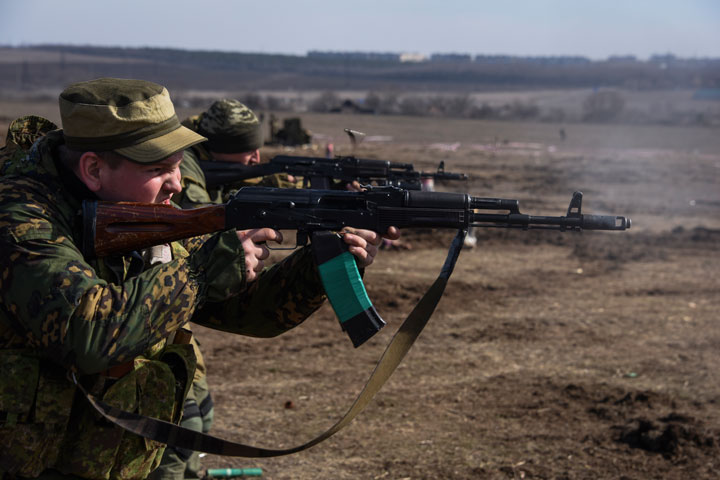KIEV, Ukraine – Amnesty International said Thursday that it has evidence that Russian-backed separatists in east Ukraine have killed several captured government soldiers in gross violation of international humanitarian law.

The human rights group said in a statement that footage it has seen shows at least four Ukrainian soldiers – now confirmed dead – being interrogated by rebel militia. Pictures showing bullet wounds to the soldier’s heads and bodies appeared to show they had died as the result of execution-style killings, the group said.
Rebel officials could not immediately be reached for comment on Amnesty’s allegations.

Get daily National news
Hundreds of Ukrainian troops are believed to have been captured by rebel forces over the course of a year-long war that has claimed more than 6,000 lives.
Both sides accuse one another of mistreating captives. Under a February peace agreement, all prisoners had been due for release in early March, but little progress has been achieved.
Amnesty said claims of summary killings should be thoroughly and impartially investigated and that perpetrators should be prosecuted in trials by recognized authorities.
“The torture, ill-treatment and killing of captured, surrendered or wounded soldiers are war crimes,” Denis Krivosheev, Europe and Central Asia deputy director at Amnesty International, said in the statement.
The English-language Kyiv Post newspaper earlier this week managed to contact a rebel unit commander, Arseniy Pavlov, who is believed to be a Russian national, to respond to widely aired claims he was responsible for executions.
In the telephone interview, which has been uploaded to YouTube, Pavlov responds – before hanging up – that he personally shot dead 15 Ukrainian servicemen.
“This chilling ‘confession’ from a separatist fighter, alongside video evidence and testimony from witnesses, and the mounting evidence of abuses of captives by both sides, highlights the urgent need for an independent investigation into this and all other allegations of abuses in this conflict which began a year ago,” Krivosheev said.

Comments